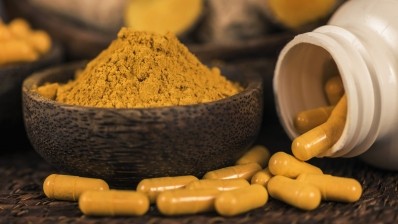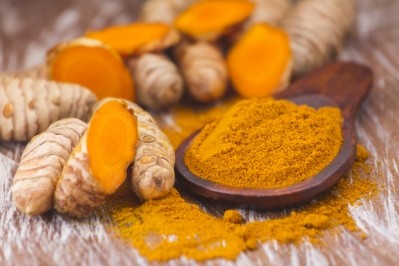Study: Curcumin extract combats the one-two punch of gut discomfort and anxiety

A new clinical study published in the journal BMC Complementary Medicine and Therapies investigated the effects of a curcumin extract on gastrointestinal symptoms, mood, and overall quality of life in adults with digestive complaints.
While previous research suggests curcumin can alleviate digestive symptoms, past trials included curcumin as a component of multi-herbal combinations.
In the most recent study, the curcumin extract branded as Curcugen by DolCas was evaluated as a stand-alone botanical intervention.
The study
The 8-week, double-blind, placebo-controlled study, led by Adrian Lopresti, PhD, was conducted on 78 adult volunteers with self-reported digestive complaints. Participants were recruited and randomized to receive either a placebo or 500 mg Curcugen.
Outcome measures included the Gastrointestinal Symptom Rating Scale (GSRS), intestinal microbial profile, and assessment on the Depression, Anxiety, and Stress scale. The GSRS subset of categories evaluated gastrointestinal (GI) clusters of reflux, abdominal pain, indigestion, diarrhea, and constipation. Additional investigations into underlying mechanisms, such as upper and/or lower microbial overgrowth were evaluated at baseline and end-of-study via two methods. SIBO (small intestinal bacterial overgrowth) was assessed via contrasting measurements of CO2, hydrogen, and methane in breath samples, while lower bowel bacterial changes were gauged with use of at-home stool sample collections.
Findings
Curcumin consumption was associated with an improvement in GSRS total scores in comparison to the placebo, along with subsequent improvement in mood dysregulation.
Dr. Shavon Jackson-Michel, Director of Medical & Scientific Affairs at DolCas, explained that the greater improvement in GSRS could mean a couple of things. “One is that because of improved stabilization of mood, the Curcugen-dosed subjects created less irritating, gut (enteric) nervous system derived immune or hormonal metabolites. Another is that Curcugen, by way of other actions not well characterized by this study’s goals, has a ‘settling’ effect on GI tract locally that is complemented by systemic effect due to enhanced bioavailability.”
An additional finding of interest was that no significant changes in bacterial make-up were noted between the intervention and control group.
“Results from this study indicate that changes in intestinal bacteria were not responsible for its positive gut action. Further research using larger samples and testing methods, and applying more detailed microbial analyses might be warranted. Nevertheless, there are other potential mechanisms at play which are associated with curcumin’s GI supporting effects. These could include its influence on intestinal barrier integrity, inflammation which influence neurotransmitter activity and visceral sensitivity,” explained lead author Adrian Lopresti.
Another reason there were no significant changes in bacterial make-up may be due to the study population being “healthy” (with the exception of the self-reported digestive complaints).
“This could dampen the extremes of dysbiosis attributed to or expected of a truly clinical population, over what we were able to discern from our participants. Additionally, our subjects had a mean BMI of 25, which while just at the cusp of normal and overweight may not have proven out as a driver of altered gut microbiome as potentially expected of a different population. Lastly, the dose chosen for this study was quite conservative, only 500 mg once per day. Higher doses may have also allowed for more significant changes between the groups. These are just some of the conclusions we could draw,” noted Jackson-Michel.
Mood
While the research establishes curcumin’s potential for supporting digestive health, it may have an even brighter future in the mood regulation category.
The study recorded a 52% reduction in anxiety levels with Curcugen, compared to a 16% reduction in the placebo group.
“According to scientific literature, negative life events, stress, and anxiety are known triggers for, and exacerbators of, functional gut disorders, such as Irritable Bowel Syndrome and Functional Dyspepsia,” said Jackson-Michel. “The findings of this study on Curcugen offer an interesting, botanical solution to dealing comprehensively with a potential causal link between these two factors.”
Jackson-Michel said the team was very pleased to see that Curcugen would have a positive effect on mood, given the difference in its composition and unique oleoresin starting material. “It further reinforces the role that synergism may be contributing to its overall action. Further, the significance of these effects at a very conservative dose nods to the superior-bioavailability of the brand.”
Jackson-Michel told NutraIngredients-USA that these findings have heightened the team’s interest in more comprehensively investigating Curcugen’s role in mood, behavior and even cognition going forward.
Source: BMC Complementary Medicine and Therapies
21, 40 (2021). doi: 10.1186/s12906-021-03220-6
“Efficacy of a curcumin extract (Curcugen) on gastrointestinal symptoms and intestinal microbiota in adults with self-reported digestive complaints: a randomised, double-blind, placebo-controlled study”
Authors: A. Lopresti et al.
















